Poems for Liszt
POEMS OF PETRARCA, LAMARTINE AND MARIO MIGUEZ
TRANSLATED AND ADAPTED BY ENRIC BENAVENT
DOWNLOAD AS PDF -> POEMAS PARA LISTZ (Recitado y Piano)
DOWNLOAD AS PDF -> POEMAS PARA LISTZ (Recitado y Piano)
EDVARD GRIEG (1843-1907)
Suite Holberg
I Praeludium
II Sarabande
III Gavotte
IV Air
V Rigaudon
LEOS JANACEK (1854-1928)
Sonata
I El Presentimiento
II La Muerte
MIJAIL GLINKA (1804-1857) –MILI BALAKIREV(1836-1910)
La Alondra (Adiós a San Petesburgo)
JEAN SIBELIUS (1865-1957)
Romanza en Reb M
MANUEL DE FALLA (1876-1946)
Pour le Tombeau de Claude Debussy
ISAAC ALBÉNIZ (1860-1909)
Córdoba (España – 6 hojas de álbum)
ENRIQUE GRANADOS (1867-1916)
Valses Poéticos
The encounter of Spaniards with the cultures of the American continent following its discovery was one of the most significant intercultural phenomena of the modern age. The Spaniards took the features of Spanish culture to the Americas, impregnating the indigenous and autochthonous cultures of that unknown universe with it. They carried our language and our songs, which very quickly brought an intercultural contagion and blend to the local songs with those differing idiosyncracies. While they certainly bore our songs, they also returned with the indigenous counterparts of those people, recorded in their hearts and in their memory, infected and infecting themselves mutually in an inevitable process of imitation where the mixture would produce the richness of interculturalism.
Interview in the inner courtyard of the hotel.
Surrounded by plants, the chirping of birds in the background and the tranquility of the charming hotel Masía La Mota. Ideal scenario to talk and get carried away by words, as we have done with Marisa Blanes, “a girl from Alcoy researcher and pianist”.
Several notes we have played with her: her career in front of the piano, the musical research, the ambitions, the special energy of her and her sisters … All this in a kind conversation in which we could not resist and we have accompanied her with her music background in the video.
“We are very mentally restless,” he confessed during the most intimate part of the interview when talking about his sisters, Carolina and Georgina Blanes, who left us in 2015. With humility, he commented that although it could be a reference to the piano nationwide , “that is not the most important”. The authors Alcoyanos Luis Blanes, Carlos Palacio and Amando Blanquer, with snacks in the house of the latter, have not been lacking in conversation. We do not reveal more, because if every musical work needs to be listened to from beginning to end, this interview deserves to be seen as well.
The alcoyan pianist has presented a book about Carlos Palacio. Marisa Blanes is one of the most solid values of the Spanish piano. In addition to his important concert work, Blanes stands out for his investigative side, especially of the alcoyans Amado Blanquer, Luis Blanes and Carlos Palacio .

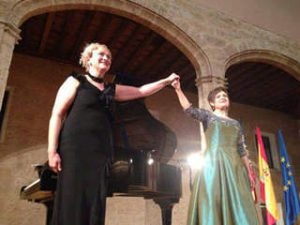
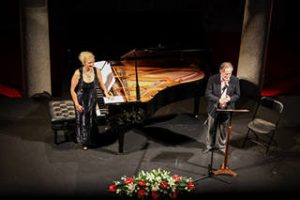



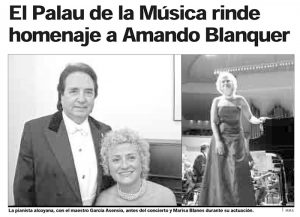

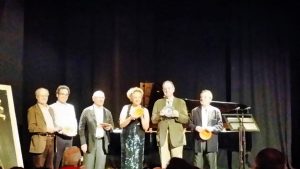

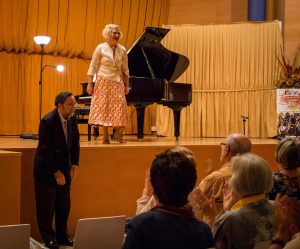
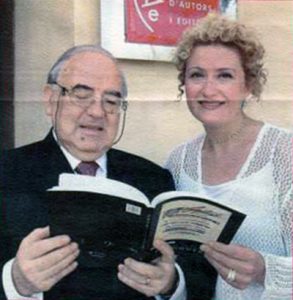


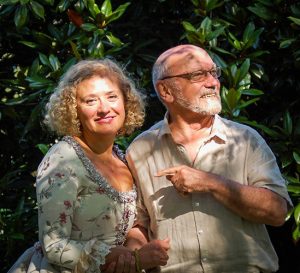



MARISA BLANES (Pulse aquí para descargar la imagen sin comprimir)
MARISA BLANES (Pulse aquí para descargar el fichero comprimido)
NOTA: El fichero se encuentra comprimido mediante .zip. Para poder utilizarlo, deberá descomprimirlo una vez descargado.
MARISA BLANES (Pulse aquí para descargar la imagen sin comprimir)
MARISA BLANES (Pulse aquí para descargar el fichero comprimido)
NOTA: El fichero se encuentra comprimido mediante .zip. Para poder utilizarlo, deberá descomprimirlo una vez descargado.
Our album Melólogos en Honor de Santa Teresa receives the Melómano de oro. award.
The Ibs Classical label has just published an excellent album with the 24 Preludes and Fugas Op. 87 by Dimitri Shostakovich, in its integral version, interpreted by the pianist and Doctor of Music from the Polytechnic University of Valencia, Marisa Blanes. 3 discs that we strongly recommend to music lovers.
The careful and well documented booklet that accompanies the 3 albums that make up this album, by the way, one of the features that we always find on the discs of the Ibs Classical label, and as a presentation of the work, we want to highlight here the following notes:
“The tonality abolished or the tonality diluted, such was the dilemma that conditioned the musical creation of the twentieth century. Dimitri Shostakovich bequeathed us a document of high musical and historical value: the 24 preludes and fugues opus 87, written for piano in homage to Johann Sebastian Bach between 1950 and 1951, opting for evolution and not for the crossroads of the rupture. Without renouncing his aesthetic creeds, Shostakovich proposes a speech of singular actuality in which tonality and modality are not produced as antinomies but as agglutinants of a renewed discourse from the paradigms of historical reason to the new hypotheses of a musical language of free expression”. (…)
“Many are the elements that underpin the course of these 24 Preludes and Fugues op.87, some structural, others formal and others of a logical or dynamic nature, each of them being components of a discourse that must be interpreted as a dramatic unit and dialectic coherent in itself and not as a series of pedagogical exercises “(…)
Before such a conceptual statement of the work, and how it should be interpreted, it is evident the difficulty of the company that Marisa Blanes has faced. And I have to say that the result seems extraordinary and, above all, moving.
Following the motivation inspired by the above notes, I decided to make a comprehensive, attentive, and profound listening. A sound trip full of wonderful “landscapes” that follow each other without solution of continuity but, as I am very well told above, they are configuring that dramatic and dialectical unit that, little by little, is shown to us as indisputable. But while this is true, it is clear, too, that it requires an interpretation that is capable of maintaining the unity required. An obligation that translates into a deep knowledge of the work, an extraordinary sensitivity capable of showing the innumerable nuances that Shostakovich proposes to us and, above all, a piano technique that is capable of not causing us to lose concentration for the necessary deep listening and avoiding that we fall into the sensation that we are before the also commented pedagogical exercises unrelated and independent.
Well, after listening to Marisa Blanes, I have to affirm that we are facing a memorable interpretation that opens new paths for the enjoyment of music in general and the music of Shostakovich in particular. To paraphrase Fray Luís de León in his praise of the music of Salinas, and allow himself to change hands by hand, we can say that listening to this album:
The air is serene, and you see beauty and unused light, Marisa, when the extreme music sounds, for your wise hands governed
Fuente:
Manuel López-Benito
clasica2.com